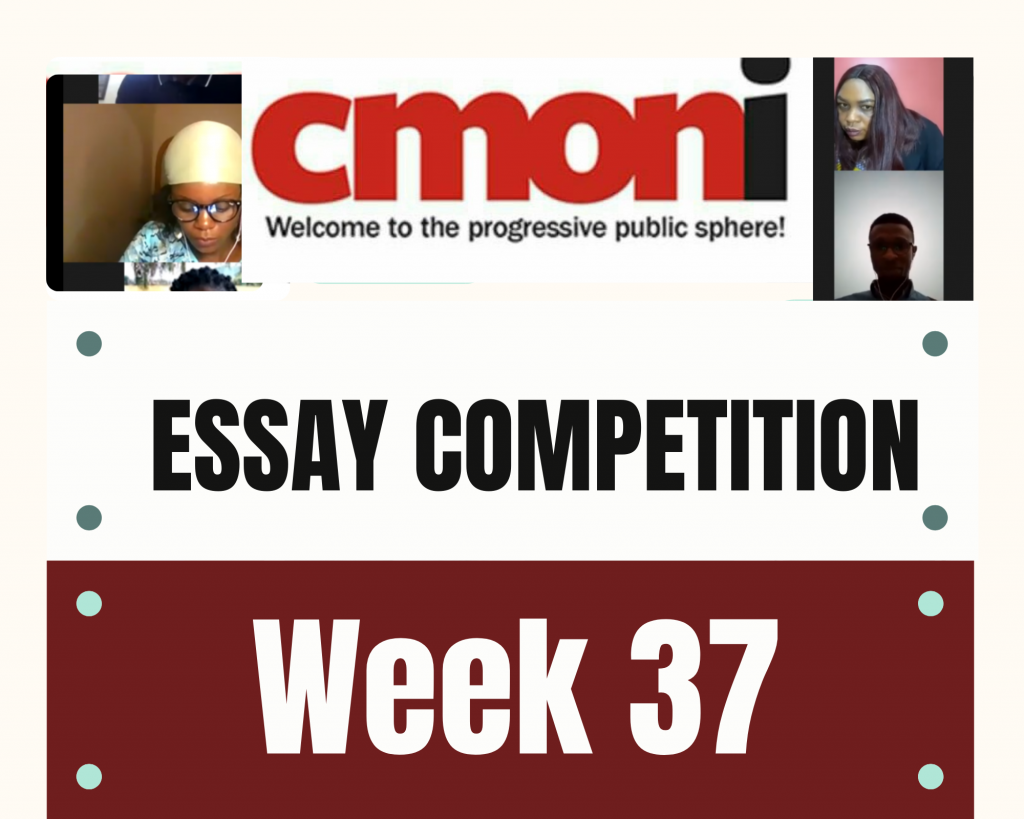Introduction
179 years ago, perplexed expressions on the faces of Nigerians must have been observed when formal education was introduced through Christian missionaries who managed the system based on their philosophies. From that moment, education started growing branches in Nigeria, and the first secondary school was established in 1859 after primary education had been rooted in the fertile soil of the land since 1842.
According to Aristotle, the great Greek philosopher, education is the comprehensive process of training man to achieve his ambition through several stages of learning from instructors. Ceteris paribus, education can be defined as a tool for raising productivity, problem-solving cognition, creativity, technological advancement, and promotion of national development as validated in several developed countries.1
However, the predominant statement, “A-grade is for God, B is for me, C is for the best student in the class, and D is for others,” has thrown the system of education of the 7th most populous country in the world into commotion. Rather than students enjoying an ocean-flow of knowledge transfer, their level of understanding of concepts being taught is intimidatingly subjected to their grades.
Furthermore, when the student-to-teacher ratio in notable countries with high standard of education like Norway is about 9:1,2 regrettably, Lagos State University and University of Abuja, for instance, reportedly has approximately 1:114 and 1:122 respectively as teacher-to-student ratio.3 This is a reflection of the situation in most educational institutions in the nation. Record also shows that 20% of the children in the world who are out-of-school are in Nigeria. This figure accumulates to about 10.5 million children not being enrolled in any school in the country.4
Well, these are some of the mayhems facing the system of education in Nigeria that has eaten up the core value of learning. Who knows if the Global Education Summit on Financing Global Partnership for Education (GPE) 2021–2025 held on July 28th July, 2021 was the answer to the prayers of millions of Nigerians regarding underfunding of the education sector? Should the promises made by our noble president be seen as a ray of hope or deceit?
The summit — the potential answer to our heart cry
President Muhammadu Buhari, the number one citizen of Nigeria, left for the United Kingdom to join his counterparts from other low-income African countries including President Kenyatta (Kenya), President Nana Akufo-Addo (Ghana), President Lazarus Chakwera (Malawi), and President Faure Eyadema (Togo) in the Global Education Summit co-hosted by British prime minister, Mr. Boris Johnson and President Uhuru Kenyatta. This summit was geared to focus on contemporary issues including education’s revitalization arising from the aftermath of COVID-19, transforming learning methodology, gender equality in education, and several other acute matters.
To the surprise of many, President Buhari at the summit vowed to increase the annual domestic education expenditure of Nigeria by 50% over the next two years and up to 100% by 2025. He also assured that education expenditure will go beyond the 20% global benchmark in the near future.5 He and other presidents in attendance extended their full endorsement to this call for a ravenous availability and competent use of resources to significantly increase investment in education. In doing so, they proposed to vehemently strengthen educational institutions, promote greater adoption of technology, hone the competencies of teachers, mobilize additional financial resources through legal structures and consider viable interventions on a sustainable basis.6
This promise made by President Buhari, however, caused pandemonium amongst Nigerians who were recovering from the discontentment of the government allocating just 5.6% of the 2021 national budget to education — the lowest in percentage of the total GDP in ten years.7 When it seemed that COVID-19 has revealed the deficiency of the education system, ranging from poor infrastructures, absence of ample ICT gadgets, lack of adequate teachers or lecturers, and so on, Nigerians could not hide their displeasure that such a ridiculous percentage was still allocated to a delicate sector of the economy.
What is domestic education expenditure?
Domestic education expenditure includes all government spending on educational institutions and administration, as well as expenses made by all economic agents — federal, state, and local government, for educational activities.
These activities include academic and extra-curricular teaching at all levels, organisation of educational system (general administration, scholarships, infrastructural development, and education research), actions intended to encourage students’ population in citadels of learning, and all expenses requested by schools, amongst few others.
Domestic expenditure on education is usually evaluated on an annual basis by the National Education Account (NAE) and it is of great importance to national development as it plays a critical role in promoting growth and equity, and through both channels, serves as an avenue to improve the quality of education in the nation.
The stumbling blocks
Going forward, corruption and lack of accountability are the major impeding problem to the realization of this promise. Falsification of public contracts or any transaction targeted at acquiring or amassing resources illegally for personal advancement or self-gratification had led to the sporadic unaccounted disappearance of funds meant to improve the educational sector.
Funds meant for salaries, maintenance of infrastructures, and so on, are being diverted for personal use. This spans through all levels of the sector ranging from primary, secondary, and tertiary. No wonder Femi Falana — a renowned Nigerian lawyer and human rights activist, opined that ‘gross mismanagement, incompetence, and corruption have been the bedrock for unfavourable policies (such as the electricity tariff increase, fuel hike, reduced budgets for education, etc) that makes life oppressive for citizens.8
Similarly, failed political promises have swallowed the trust of Nigerians in people vested with public power. This is the state of affairs where exceptional power combines with uncommon greed to create immense dishonesties and unfulfilled pledges. When the incumbent president assumed power in 2015, he guaranteed the masses that several challenges facing the nation at that time will be put to an end. The reverse is the reality now. The Academic Staff Union of Universities (ASUU) has gone on industrial strike action for a total of approximately 14 months leading to total cessation of academic activities within 6 years of President Buhari’s regime.
Also, insecurity is now awfully crippling the education system in recent years despite Buhari’s promise to address the issue following the abduction of the Chibok girls during his predecessor’s administration. On the flip side, schooling has turned into a dicey venture that portends the frequent loss of life and freedom of young Nigerians. About 8 months ago, on December 11, 2020, 344 male students were kidnapped from their hostels in Government Science Secondary School, Katsina State, and in less than 2 weeks after that pathetic incidence, 80 pupils of Islamiyya School, Kaduna State were abducted on December 20. February 17, 2021 saw another ferocious rage when 279 students were abducted from Government Secondary School, Jangebe, amongst several other recent cases.9 All these happenings and others not cited, have swept under the carpet, the possibility of Nigerians having faith in any promise made by the present administration.
Furthermore, the ‘I don’t care attitude’ of people who are working with government — federal, state, or local government level is another contending issue. No one is ready to give the leaders support to revamp our system of government. This is a negative attitude that has pervaded the heart of many people in Nigeria. They see the system to be rotten and when the chance to be an element of change arises, they consider it as an opportunity to have a share of the national cake. Many have forgotten that democracy is the government of the people, by the people, and for the people. They have neglected too soon that we all constitute one way or the other, to the national development of the country. This might be another reason the pledge of the president might not see light.
Analysing the possibilities
Without mincing words, Nigeria is still lurching in the underfunding of her educational institutions which is impeding the possibilities of Nigerian schools leading the frontline of unrivaled education in the world. What an ignominy to the image of Nigeria that even the first and the best University in the nation could only settle for a 400–500th category world ranking by Times Higher Education, 2020.10
But despite all odds, the promise made by President Buhari to increase the education expenditure by 50% over two years is very plausible. However, lots of commitments need to be vested into it. From page 1036 of Nigeria’s 2021 budget from the Budget Office of Federation, it clearly shows that an amount of N771,461,372,053 (N771.5 billion) was allocated to education.11 Similarly, for the year 2020 and 2019, a total amount of N686,821,431,517 (N686.8 billion)12 and N634,557,159,877 (N634.6 billion)13 were allocated to education expenditure respectively. This illustrates that an increase of 8.24% and 12.32% were recorded in 2020 and 2021 of the previous years’ value.
Going by the analysis above, if a total of N1.157 trillion can be raised in the next two years, then the target of 50% promised will be attained. This is just 385.75 billion up the 2021 value. Like William Arthur said, ‘If you can imagine it, you can achieve it,” the pronouncement to increase education expenditure is of no doubt, a step in the right direction relaying a ray of hope to all Nigerians.
Not neglecting notable achievements by the present administration thus far, we can be relieved of the doubt that the promise is not a deceit. President Muhammadu Buhari’s government recently launched the Alternate School Programme (ASP), premeditated to endorse that every out-of-school child in Nigeria gains access to quality basic education, regardless of social bias. Likewise, we cannot but thank the current administration for the promotion of a merit-based admission process into tertiary institutions by introducing the Central Admission Processing System (CAPS). I will not forget to disclose that the increment from N150,000 to N250,000 of the annual scholarship payment by the Federal Scholarship Board (FSB) during Buhari’s tenure is a laudable landmark portraying that the needs of disadvantaged students are prioritized to encourage them to learn without any iota of worry.
Also, his government has completed the promised construction of the 156km Lagos-Ibadan standard gauge railway line, with the Ebute Metta station having a remarkable capacity of 60,000 passengers being the largest railway station in West Africa. This is a tip of the iceberg of several milestones by the current administration. Maybe, a little support, a little investment of hope from me and you might be the way out in getting the job done once again in the education sector. This is because the possibility of skyrocketing the budget of education rests on the shoulder of everyone by mandating our legislative to enforce a minimum of 20% education budget of the total GDP or no appropriation bill approval to the executive arm of government, led by the president.
The benefits
Education is unarguably the starting point of the training of professionals in diverse spheres of life. Everyone out there started their journey of life in schools where they were impacted with the knowledge that helped in fulfilling their goals and ambitions. The products of people who transited from schools to the labour market give a reflection of the society in which we interact with.
Unarguably, education is not a short time asset, but an investment that is expected to yield returns in the future. If appreciable funding can be invested into this sector, by increasing the annual education expenditure enormously, then the birthing of top-tier medical practitioners, engineers, lawyers, etc will be experienced habitually. These people will subsequently be pivotal in leading the frontline of creating a progressive economy.
Furthermore, if the sporadic increase in budget allocation for education becomes a reality, it will lead to a developed and educated society that has enough manpower with every person occupying his or her rightful position to revolutionize the society. Not only does education catalyzes the advancement of a country, but also increases individual knowledge and fosters national development.
Also, we are living in an advanced and innovative society. The demand of the time and season is creativity, integration of research, and analytical approach of thinking. To prepare the youth and children to tackle the status quo of the nation, they must possess well-rounded skill sets that will make them more flexible and inventive to overcome daunting challenges at both national and international levels. It is necessary to increase students’ exposure to technology and modern methodologies which can only be deeply explored if enough funds are pumped into the education sector.
Without bias, education provides capital values, such as competence, knowledge, and the needed expertise to improve health conditions, provide stable employment, increase one’s income, maximize output, and improve the individual’s quality of life. The acquisition of these educational capital values provides social, cultural, and economic benefits.
Education is a ray of light in the darkness of ignorance and optimism for a good life which ought to be a basic right of every human on earth. If the 50% increment in education expenditure can be achieved, there will be an upsurge in nation-building because the provision of a sustainable educational structure in a nation is one of the invaluable gifts a government can offer.
Conclusion
I might be tempted to say that the pledge made by the president was just an act of playing along in the summit. Probably, that was not his first time breathing false hope into Nigerians. Nevertheless, we should not be blindfolded by the events of the past. Let us give the promise made an element of doubt while crossing our legs to see what will happen in the next few years.
As Steve Job once said, “The people who are resolute enough to think they can transform the world are the ones who do.” President Buhari only made the vow on behalf of the democratic country; nonetheless, everyone has a part to play to see this dream come to pass, knowing fully well that the projected benefits will revitalize the nation for the betterment of all. Although the education sector has been deteriorating over the last few years due to inadequate funding, this promise of massive investment will play a vital role in the revival of the sector that serves as the foundation of all learned creatures in the society.
Whether we see it is as a possibility, a ray of hope, or deceit, one thing is certain — nothing comes easy. Every good thing comes with a price. Maybe, in this case, the price is our belief in this dear country and the undiluted support we can offer in achieving the promise together.
REFERENCES
[1] Oriakhi, D. E., & Ameh, G. (2014). “Government expenditure and the development of the education sector in Nigeria: An evaluation. Review of Public Administration and management.” Issued July.
[2] Oriakhi, D. E., & Ameh, G. (2014). “Government expenditure and the development of the education sector in Nigeria: An evaluation. Review of Public Administration and management.” Issued July.
[3] WES Staff (2017), “Education in Nigeria” Retrieved from https://wenr.wes.org/2017/03/education-in-nigeria
[4] UNICEF (2021). Retrieved on August 22nd, 2021 from https://www.unicef.org/nigeria/education
[5] Johnbosco Agbakwuru (2021), “Buhari promise to increase education budget by 50%.” Retrieved on August 22nd, 2021 from https://www.vanguardngr.com/2021/08/buhari-pledges-to-increase-education-budget-by-50-per-cent/
[6] Stephen Abgbulu (2021). Retrieved on April 22nd, 2021 from https://punchng.com/education-budgetll-rise-by-50-in-two-years-buhari/
[7] Alfred Olufemi (2020), “Buhari’s 2021 budget share for education is Nigeria’s lowest in 10 years.”
Retrieved on August 23rd, 2021 from https://www.premiumtimesng.com/news/headlines/422829-buharis-2021-budget-share-for-education-is-nigerias-lowest-in-10-years.html
[8] Sahara Reporters (2020). Retrieved on August 22nd, 2021 from http://saharareporters.com/2020/09/17/nigeria-not-broke-mismanagement-public-funds-incompetence-responsible-anti-people
[9] Olusola Owonikoko (2021) “Insecurity crippling the education sector: Here is what we must do.” Retrieved on August 22nd from https://www.thecable.ng/insecurity-is-crippling-nigerias-education-system-heres-what-we-must-do
[10] The World University Rankings 2021: results announced. Retrieved from https://www.timeshighereducation.com/news/world-university-rankings-2021-results-announced
[11] Budget Office of the Federation, “2021 Signed Budget” https://budgetoffice.gov.ng/index.php/resources/internal-resources/budget-documents?task=document.viewdoc&id=935
[12] Budget Office of the Federation, “2020 Initially Approved Budget” https://budgetoffice.gov.ng/index.php/resources/internal-resources/budget-documents?task=document.viewdoc&id=750
[13] Retrieved on August 22nd, 2021 from https://budgetoffice.gov.ng/index.php/signed-2019-budget-vol-2?task=document.viewdoc&id=728
Oluwatimilehin Folarin wrote in from Abeokuta via oluwatimilehinfolarin@gmail.com








